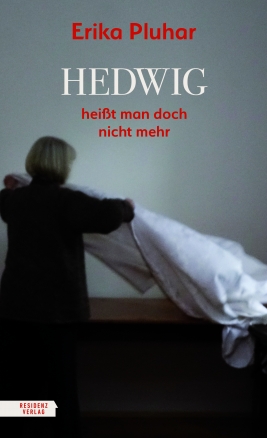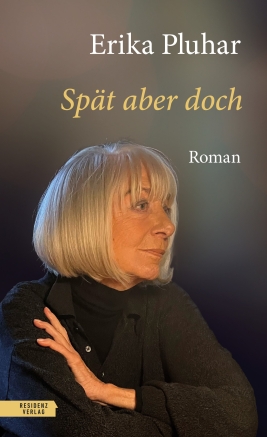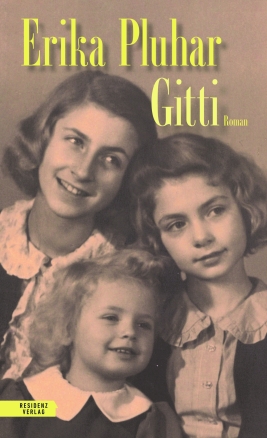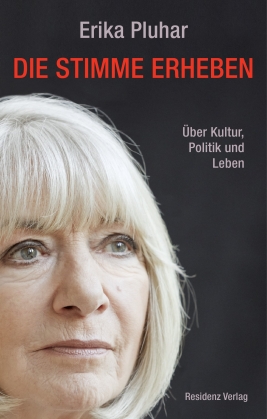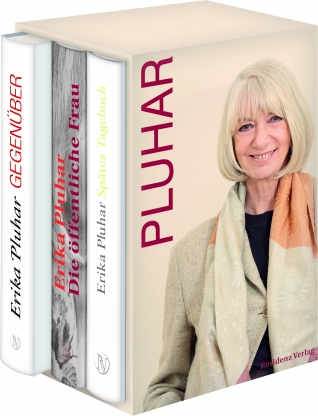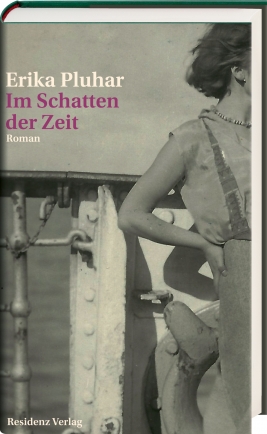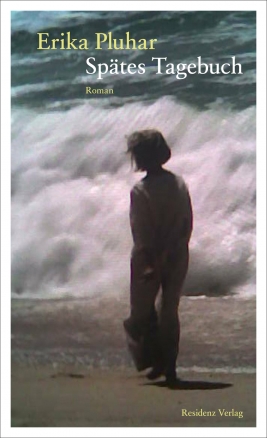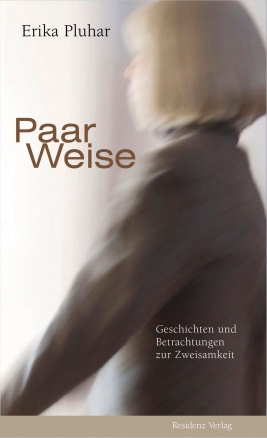Erika Pluhar schreibt in „Hedwig heißt man doch nicht mehr“ auch an gegen Rassismus und Intoleranz.
[Quelle: ORF]
Erika Pluhar ist in Österreich eine moralische und intellektuelle Instanz.
[Quelle: NDR]
Ein neuer Roman von Erika Pluhar, das ist so ein Gefühl – man will jemanden umarmen; und mittlerweile ist es sogar wie Nachhause kommen.
[Quelle: Peter Pisa, KURIER]
Im Buch geht es um die ganz großen Themen: Es geht um das Leben, um die Liebe, um den Tod – den Rückblick auf das Leben.
[Quelle: Achim Bogdahn, BR EINS ZU EINS]
Erika Pluhar gelingt es mit diesem Roman in emotionaler Tiefe Gedanken über das Leben zu Papier zu bringen. Vergangenheit, Gegenwart und Zukunft werden hier gekonnt in einen Kontext gesetzt. Sensibel deckt sie Sehnsüchte und Ängste einer Frau auf, die für ihre Zeit ein wechselvolles Leben hatte.
[Quelle: Michael Lausberg, SCHARF LINKS]
Erika Pluhar über eine 51-Jährige, die an einem Wendepunkt steht.
[Quelle: TVMEDIA]
Erika Pluhar erzählt aus unterschiedlichen Perspektiven vom Erwachsenwerden, von Liebe, von Fürsorge und Abschieden.
[Quelle: Christina Repolust, APROPOS]
Pluhar schreibt sinnlich, präzise und versteht es, einen mitzunehmen.
[Quelle: HÖRZU]
"Eine Lebensgeschichte" heißt der wie Pluhars bisherige Bücher von einem sanft melancholischen Grundton getragene Roman im Untertitel, und es ist Hedwigs eigene Geschichte, die sie - in langen, kursiv gesetzten Textpassagen - ihrer Großmutter erzählt.
[QUELLE: APA]
Es wird zum Bericht vom Leben einer Frau, der nicht gelingen wollte, den genormten Forderungen ihrer Zeit zu genügen, die nach allem vergeblichen Bemühen immer wieder in Isolation und Einsamkeit geriet.
[Quelle: BEZIRKSREVUE]
„Hedwig heißt man doch nicht mehr“ macht Mut, die Wendepunkte im Leben willkommen zu heißen.
[Quelle: DONNA]
Wer Erika Pluhars Stimme kennt, hört sie erzählen. Wer sie nicht kennt, hat etwas versäumt.
[Quelle: Birgit Meinhard-Schiebel, PFLEGE UND KUNST]
Die lesenswerte Geschichte einer Frau, die nicht immer so stark ist, wie sie sein möchte.
[Quelle: Beate Rottgardt, RUHR NACHRICHTEN]
Die Wiener Schauspielerin, Sängerin, und Autorin Erika Pluhar findet in „Hedwig heißt man doch nicht mehr“ für ihre Protagonistin warme Worte mit einer melancholischen Note. Und man bekommt Lust auf die Gassen Wiens und ein Glas Heurigen …
[Quelle: Michaela Höber, NORDBAYERN]
Dieser Roman berührt durch die ehrliche, reflektierte Erzählung eines Lebens: Nichts wird ausgeklammert, weil Liebe, Enttäuschung, Hoffnung, Begeisterung, Trauer, einfach das pralle Leben, in diesem Buch stecken. Pluhars zarte, feinfühlige Sprache, diese Ehrlichkeit in allen Belangen macht lachen und trauern, macht heimisch mit der Protagonistin. Diesen Roman sollte man Lesen!
[Quelle: Angela Zemanek-Hackl, BIBLIOTHEKSNACHRICHTEN]
Die lesenswerte Geschichte einer Frau, die nicht immer so stark ist, wie sie sein möchte.
[Quelle: Beate Rottgardt, HELLWEGER ANZEIGER]
Erika Pluhar hat aus der Interpretin eine Künstlerin gemacht. Bis heute führt sie täglich Buch über ihr Leben und entwirft schreibend das Leben anderer. Humorvoll. Klug. Streitbar. Das ist sie. Und sie verfügt über eine Stimme, die man auch ob des Gesagten hören möchte.
[Quelle: Klaus Peter Vollmann, BUEHNE]
Meist amüsant leichtfüßig, manchmal schonungslos intensiv legt Pluhar das Seelenleben ihrer Hedwig offen. Ein lesenswertes Buch der früheren Burgtheater-Schauspielerin.
[Quelle: Eva Fischl, PASSAUER NEUE PRESSE]
Die Geschichte hat mich mitgerissen und berührt.
[Quelle: RADIO OSTTIROL]
Meist amüsant leichtfüßig, manchmal schonungslos intensiv legt Pluhar das Seelenleben ihrer Hedwig offen. Ein lesenswertes Buch.
[Quelle: Eva Fischl, PASSAUER NEUE PRESSE]
Ein einfühlsamer ...Roman. Empfohlen.
[Quelle: Marion Sedelmayer, BUCHPROFILE/MEDIENPROFILE]
Unterhaltsamer spannender Roman über Frauenleben und das Leben überhaupt, der seine Leserinnen finden wird.
[Quelle: Bettina Wolf, DER EVANGELISCHE BUCHBERATER]
